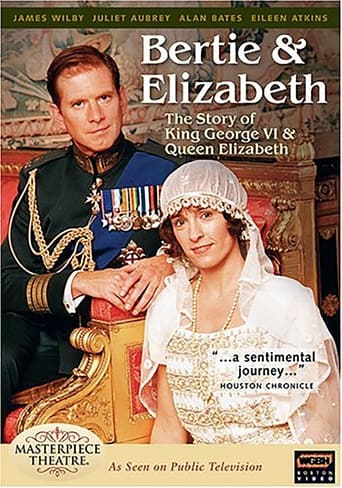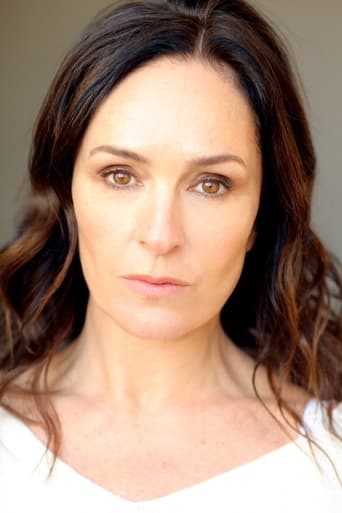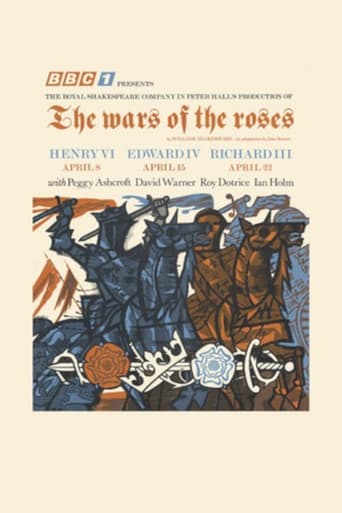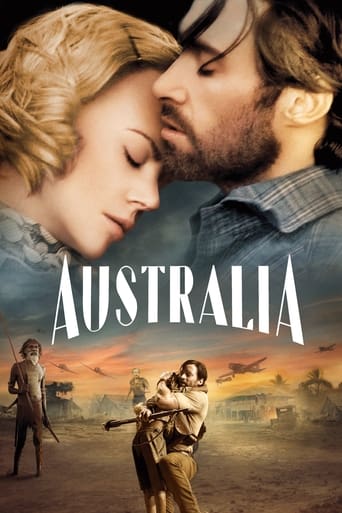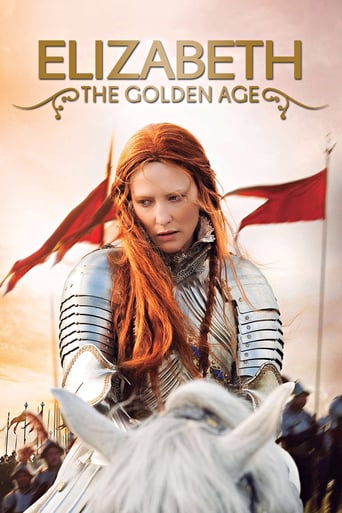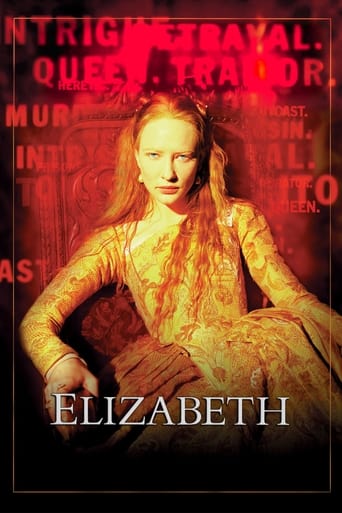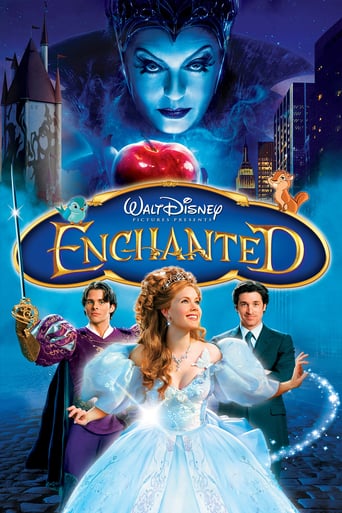Bertie and Elizabeth (2002)
The duke of York, nicknamed Bertie, was born as royal 'spare heir', younger brother to the prince of Wales, and thus expected to spend a relatively private life with his Scottish wife Elisabeth Bowes-Lyon and their daughters, in the shadow of their reigning father, George V, and next that of his elder brother who succeeded to the British throne as Edward VIII. However Edward decides to put his love for a divorced American, Wallis Simpson, above dynastic duty, and ends up abdicating the throne, which now falls to Bertie, who reigns as George VI.
Watch Trailer
Cast


Similar titles
Reviews
I love this movie so much
Good story, Not enough for a whole film
Excellent, Without a doubt!!
It's funny, it's tense, it features two great performances from two actors and the director expertly creates a web of odd tension where you actually don't know what is happening for the majority of the run time.
Before THE KING'S SPEECH (2010) there was BERTIE AND ELIZABETH, a glossy costume-drama concentrating on the public life of King George VI (James Wilby). Dominated by his tyrannical father (Alan Bates), and cast into the shadows by his playboy brother David (Charles Edwards), Bertie grows up almost afraid of his own shadow with a stammer that becomes more pronounced in stressful situations. He marries Lady Elizabeth Bowes-Lyon (Juliet Aubrey), who becomes his emotional as well as his spiritual rock. Together they visit Lionel Logue (Michael Elwyn), the speech therapist who begins his treatment by having the three of them lying on the floor. Although somewhat confused by this unorthodox approach, Bertie agrees, and slowly acquires self-confidence.Giles Foster's production celebrates Bertie/ King George for his selfless devotion to duty. Despite his character flaws, he accepts the job of being King and undertakes it to the best of his ability. His loyalty is contrasted with his brother's fecklessness; despite an obvious surface attractiveness, David is too self-interested to become an effective monarch. He would rather spend his time cavorting with Wallis Simpson (Amber Rose Sealey) and exchanging malicious gossip about his brother's shortcomings.Inevitably this ninety-minute production telescopes historical events, especially towards the end of Bertie's life (the seven years between the end of World War II and his death in 1952 are perfunctorily dealt with). Yet this does not really matter: what is more important is to note the way Bertie learns how to deal with events - especially the privations of the London Blitz. The scene where he and Elizabeth visit London's East End in the wake of an air-raid is particularly effectively done, showing the way in which social divisions no longer mattered at that time: everyone shared similar experiences of suffering.Aubrey's Queen Elizabeth comes across as an eminently practical personality with a pathological hatred of her brother-in-law. On the other hand she, like her husband, are loving parents, providing a safe and secure environment for Lillibet (Naomi Martin) and Margaret (Jenna Molloy) to grow up in.BERTIE AND ELIZABETH might not be historically very exact, but it nonetheless celebrates those particularly British virtues of understatement and stoicism.
The story opens in 1920, as the young Duke of York (James Wilby), known as "Bertie" to his family, meets Elizabeth Bowes-Lyon (Juliet Aubrey) at a dance and is immediately infatuated with her. Though a royal prince hadn't married a commoner since Anne Boleyn, Bertie loved the charming and vivacious Elizabeth; they were married and had two daughters. Theirs was a true love match and Bertie spent happy times with his family, a luxury afforded him because he would never be King, or so he thought. Then his brother's abdication changed Bertie's life forever and he assumed the throne as King George VI.This is a sweet love story with two very likable actors in the leads. Wilby and Aubrey are quite sympathetic and convincing as Bertie and Elizabeth. Bertie was self-conscious and stammered, especially when bullied by his father, but Elizabeth helped him overcome it. As the years go by we see the abdication, WWII, their daughter's marriage, and a succession of Prime Ministers come and go; the one constant in their lives was their absolute devotion to each other and their personal strength and integrity. The story ends with his death at the age of 56; his wife would outlive him for fifty years.This Masterpiece Theatre production is recommended for those who enjoy stories about the royals. Despite the opulent sets and costumes, it's a wonderfully intimate story of a couple who loved their country and each other until the end.
Apparently, not too many people are watching PBS's "Masterpiece Theater" anymore, and most likely aren't that interested in Britain's royal family. The scandalous affair between England's King Edward VIII (Charles Edwards) and Wallis Simpson (Amber Sealey; a very ambitious, American woman) isn't exactly hot gossip today. Although British royals had become quite snooty by then - and Edward VIII was a modern man - the movie didn't really bring-out that the "Elizabeth" (Juliet Aubrey) in it was a commoner, no doubt from a prominently wealthy family. Edward DID remind his brother (who had become King George VI) of that fact, and the scandals in their ancient family certainly were more notorious than a monarch marrying a common, divorced woman. One of those scandals was the changing of the family-name to "Windsor" from their German name during WW I. My comparison of the two actors was, George VI - the younger brother of Edward VIII - looked older ! Here is a perfect example of how close siblings become completely estranged.......We are all aware the young "Elizabeth" in this movie is still on England's throne........veddy proper monarch (which makes me wonder how she is portrayed in the 2006 movie "The Queen"). History has recorded that Edward VIII (The Duke of Windsor) was given an allowance of 25,000 lbs-per-year, spending much of his time in The Bahamas, where Princess Margaret did a lot of her paryting - and it was a LOT of partying....she knew, as we have seen, Elizabeth II wasn't/isn't about to give-up the throne till she croaks. Since there was little chance of her ascending the throne, Margaret lived-it-up. Most popular of the long line of "royals" (although she was a commoner) was Elizabeth "The Queen Mum" (until 2002) was quite a character. This movie does not show enough of how light-hearted and fun-loving she was. Another pique to me was the movie did not mention that Queen Whilimina (of The Netherlands) was the world's wealthiest woman during the time she had her "court-in-exile" in England, escaping Hitler's hordes.An interesting fact that perhaps few people in the world today know is that Buckingham Palace - the seat of British royalty - was once a "townhouse" in London. It was purchased in 1761 for George III's wife - the same one the U.S. revolted against. Queen Victoria was the first British monarch really to live there (1837), and did much of the re-building to make it the grand palace it is today. It is not a museum, although it is crammed with priceless objet d'artes, but is a working palace - all 775 rooms of it. The rooms shown in this movie are not nearly rich enough.......I love all the intrigue in movies like "Bertie and Elizabeth". George V (Alan Bates) lived in much greater splendor than his successor. Today's Queen Elizabeth II has reverted to granduer, which we poor folk can hardly imagine. However, a great lesson can be learned from the fact that modern, American families can't be happy in their "palaces", because all of those creature-comforts really can't buy happiness. I guess it takes a special kind of "family" - how ironic Princess Di (another commoner) was the most beloved over all those royals.I would recommend it would be worthwhile for anyone to do some research, find this TV-movie and enjoy its historical message, which is even British film-makers (director Giles Foster, scripter Nigel Williams) can't even show us how the royals live - that's why I rate it with an 8.....
You're right folks, this really was below par. I now know why it went straight to cable. Yet it wasn't for lack of acting talent. James Wilby was excellent as the shy and fearful Bertie, thrust onto the throne by his brother David's abdication, and Juliet Aubrey was fine as Elizabeth. Alan Bates harrumphs splendidly as George V and Eileen Atkins, although too old for the role, carries off Queen Mary in a sympathetic manner. Charles Edwards as Edward VIII (`David') has plenty of presence and Paul Brook is superb as private secretary Tommy Lascelles. So what went wrong?The scriptwriters clearly set out not to offend anybody living, and while Elizabeth the Queen mother died in 2001 her daughter is very much alive and occupying a position of some importance. They were so careful in fact that Prince Philip, always good for some boorish misunderstanding, does not even appear. Neither does his conniving uncle Dickie Mountbatten, though he is mentioned in the dialogue. The enmity between Elizabeth and Wallis Simpson is merely hinted at. But the real problem is the failure to identify the strong elements in the story, the courtship/ wedding, the abdication and the war and write around them, instead of putting the whole thing together as a sort of photo album. Maybe as another commenter says, the mini-series format would have been better, though it might have just created a longer mess. If you really want to know about the history of the early Windsors, you are going to have to read some books. Edward VIII wrote his account in `A King's Story' published in the early 1950s. He blames Baldwin for forcing him out but makes it clear that he had little difficulty in choosing between love and duty. Poor old Bertie had no such choice and was saddled with the extra burden of being King during wartime. His father describes himself and Edward as `ordinary men' and Bertie, like most of the hereditary aristocrats of Britain was deeply ordinary (and interested mainly in country pursuits). The most remarkable thing about Bertie was the way he overcame his stutter (especially over `B' words). It would have been interesting to know how this was done, but though the stutter gets some attention we are hustled out of the (Australian) therapist's rooms just as the treatment starts. So, more or less a waste of space. There's been plenty of attention given to `David' before, but this show fails to give a new perspective to the historical events it so lightly covers. A great pity the Queen Mum never wrote her memoirs now that would have been interesting.

